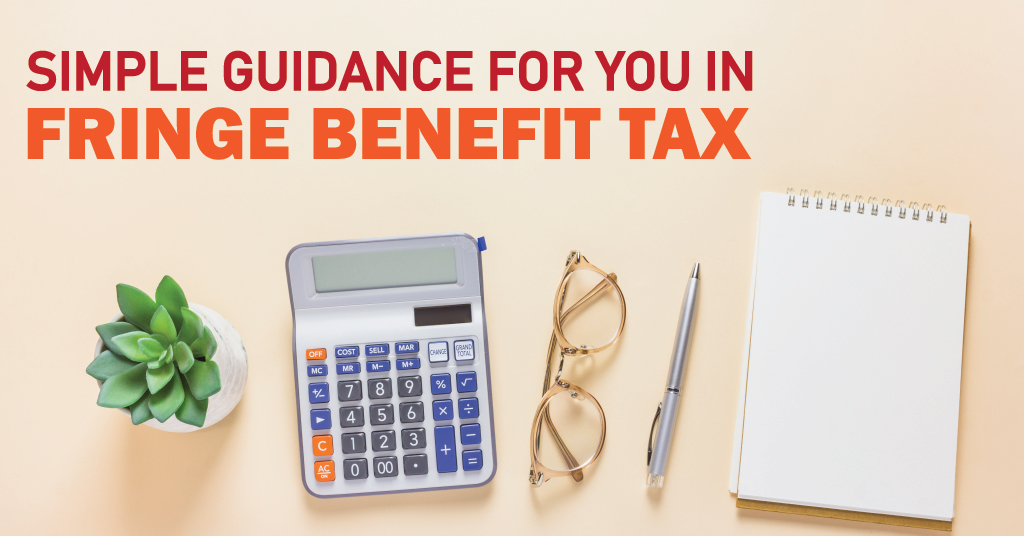
Simple Guidance For You In Fringe Benefit Tax

Fringe Benefits Tax was first imposed in 1986. The following tax is to be paid by the employers to the government to offer fringe benefits to their employees. Fringe Tax can be understood in layman language as tax to be paid by an employer on any benefits provided to employees above their salary. The benefits may include allowing employees to use company vehicles for personal use, Providing gym membership, Providing loans at discounted rates, Providing movie/concert tickets to employees, etc. Fringe Benefit Tax was introduced to meet the shortcomings of Income Tax Law which allowed benefits other than salary and wages to be Tax-Free Income. The following benefits are used by the employer to attain and retain highly capable individuals as employees in their firms. According to the Australian Tax Office, the rate of FBT in Australia is marked as 47% for the year ending 31st March 2020.
Types of Fringe Benefit Tax
The following are the categories of benefits listed down by the government on which the employer is liable to pay FBT.
FBT on Car
Employers are liable to pay the Car Fringe Benefit Tax if the car is to be provided by them to the employee for personal purposes. The Car FBT is to be implied if the car happens to be A Sedan or Station Wagon, Any good carrying vehicle having to carry capacity less than one tonne such as a panel or utility van or a passenger-carrying vehicle designed for less than nine people. The employer is liable to pay FBT on cars even if it parked at an employee’s residential even for safety reasons, Car used for traveling to work is also considered to be personal use.
Exempt Car Benefits
Employee’s private use of taxi or any vehicle distinguishing from the above-mentioned vehicles, Using the vehicle for no work-related minor purpose or incidental travel during the time of performing employment-related travel can be exempted from the Car Benefits Fringe Tax.
FBT on Car Parking
When the Car parking facility is provided by employer to employees, it also has to fulfill the following conditions in order to make Car Parking FBT applicable
The car is parked at premises that are owned or leased by, or otherwise under the control of, the provider (usually the employer)
- The car is parked for a total of more than four hours between 7.00am and 7.00pm on any day
- The car is owned by, leased to, or otherwise under the control of, an employee, or is provided by the employer
- The parking is provided in respect of the employee’s employment
- The car is parked at or near the employee’s primary place of employment on that day
- The car is used by the employee to travel between home and work (or work and home) at least once on that day
- There is a commercial parking station that charges a fee for all-day parking within one kilometre of the premises on which the car is parked and
- The commercial parking station fee for all-day parking is more than the car parking threshold, and
- At the beginning of the fringe benefits tax (FBT) year, the commercial parking station fees for all-day parking was more than the car parking threshold.
Car Parking FBT Exemptions
Exemption on Car Parking FBT can be availed by employers if they meet the conditions of a Small business entity by satisfying the following conditions (The parking is not provided in a commercial car park. The employer is not a government body, a listed public company, or a subsidiary of a listed public company. The employer qualifies as a small business – that is, either your gross total income for the last income year before the relevant FBT year was less than $10 million, or you was a small business for the last income year before the relevant FBT year.) Car Parking FAT exemption can be attained by research, Charitable, Religious or Educational Institutes or for employees with a disability.
Fringe Benefit Tax on Loan
The FBT is applicable when an employer provides a loan to employees on a discounted rate of interest from the benchmark interest rate. The taxable value of Loan fringe benefit is the difference between interest calculated on daily balance at the benchmark rate.
Exemptions for FTB on Loan
Under following categeories the exemption on FTB on Loan can be prevailed.
Money Lending Business: If the money is provided on a fixed interest rate the FTB cannot be considered. Though it is very important to provide the documentation of the same.
Deemed Dividends: Loans deemed to be dividends under Div 7A, are generally excluded as fringe benefits.
Temporary advance: If the salary is provided to employees in advance to pay their rental bills or temporary accommodations.
FBT on Entertainment
Fringe Benefit Tax on entertainment applies when there food, travel or recreation is provided by the employer to the employees. Recreation includes amusement, sport and similar leisure pursuits. The entertainment facility provided to clients is not considered for FBT. For calculation of FBT on entertainment, the actual amount paid for the employee is to be considered. In any case, if the entertainment is provided to both clients and employees at the same time the calculation gets difficult and thus in that case counting per head method can be used.
FBT on Debt Waiver
The FBT on Debt Waiver, as the name suggests is applicable when the debts of an employee are waved off by the employer. For example, if an employer provides any commodity to an employee and later asks them that it’s not necessary to pay the invoiced amount of the same commodity the debt waiver benefit is provided. If any bad debt has been waived off it gets exempted from the FBT on debt waiver.
FBT on Housing & LAFHA
In a scenario where the employee gets benefits by employer while living away from home in form of extra allowances so that an employee can pay for additional expenses that are incurred because of living away from home, the FBT is applicable. The value of tax can be reduced if an employee maintains a home in Australia at which they usually reside, the employee provides you with a declaration about living away from home, the fringe benefit relates to the first 12-month period at a particular work location. Employees who work on a fly-in fly-out or drive-in drive-out basis don’t have to maintain a home in Australia and don’t have the 12-month limitation.
The FBT on Housing is applicable when an employer provides an employee an accommodation which is rent-free or the rent is reduced and the place is the usual accommodation of employee. It includes a house, flat or home unit, a caravan or mobile home, accommodation in a hotel, motel, guesthouse, bunkhouse or other living quarters, accommodation on a ship or other floating structure.
FBT Exemptions
The exemption in FBT prevails for Nonprofit organizations, Health promotion charity, Public or nonprofit hospitals. The exemption can also be provided to organizations whose if the total grossed-up value of certain benefits (which are benefits that are not otherwise exempt) provided for each employee during the FBT year is equal to, or less than, the capping threshold.
For more information please contact us on ankit.mehta@ascendum.com.au









